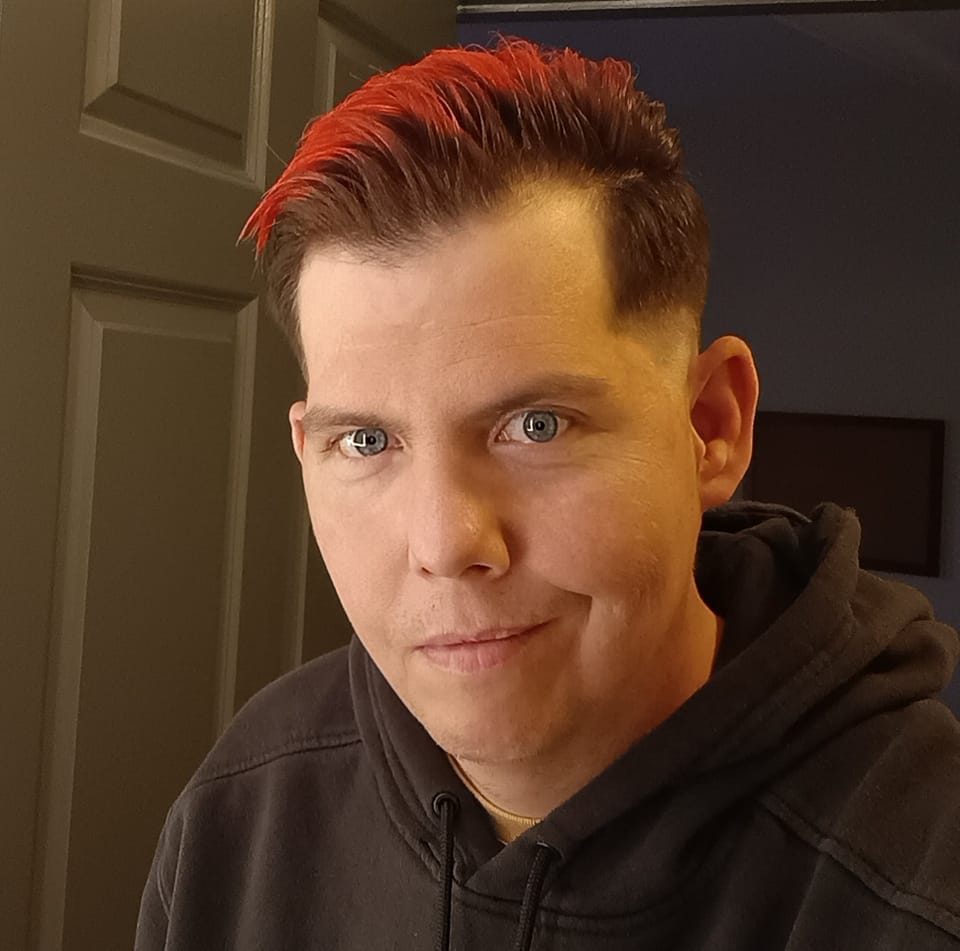

Today we’d like to introduce you to Aaron Anderson.
Alright, so thank you so much for sharing your story and insight with our readers. To kick things off, can you tell us a bit about how you got started?
My Story: Red Flame Legacy
I never set out to be an artist. I never set out to write novels, record music, or build anything that would one day reach thousands of people across platforms. My story begins much smaller: with a promise I made to my mom.
She asked me to go to church with her. That promise may sound simple, but it became the first thread in a story I could have never written for myself. I believe with everything in me that I wouldn’t be here today without that promise.
The Night Everything Could Have Ended
There was a night I’ll never forget. I was in the backseat of a car. We were drunk and reckless, and the night spun out of control. The car flipped four times. It should have been the end.
But somehow, I walked away. Broken, bruised, my back in pain…but alive.
That Sunday morning, even after everything, I still showed up to church with my mom. I didn’t understand why. Maybe it was stubbornness, maybe it was habit. But I went. I remember lying on the floor in the very back of the church, my back throbbing, feeling out of place.
One of the men there came up to me and asked if I wanted to come forward. At first, I refused. I wasn’t sure what it was about. I thought church was fake, just another game. I didn’t want to be a part of it. But eventually, I went forward, not because I believed, but because I wanted to shut it down. I thought, Fine, I’ll prove this isn’t real.
But something happened. The pastor prayed over me, and while I didn’t fully believe yet, a seed was planted. Deep inside, something stirred. I wasn’t ready to accept it at the time, but that moment mattered more than I realized.
That seed didn’t bloom right away. It stayed hidden, buried under my doubts, my struggles, and my stubbornness. But over time, God watered it.
I wasn’t saved in front of a crowd. I wasn’t saved in the middle of a worship service. I was saved alone, when it was just me and God. That was the moment everything changed.
When I gave my life to Christ, it wasn’t with emotion or pressure. It was with surrender. And from that moment, the way I saw the world shifted. My words became sharper, my thoughts clearer. Everything I created after that moment carried something deeper.
At the time, I was working as a night superintendent. The job didn’t require me to stay inside all the time, which gave me long stretches of quiet. Most people would use that time to rest or zone out. I used it to write.
My truck became my writer’s desk. I’d sit in the cab with a notebook propped on the steering wheel, scribbling line after line, page after page. That’s where The Crownless Heart was born.
At first, it was supposed to be one book. Then it became a trilogy. Then I thought: maybe ten books. But I’ve always been the type of person who pushes myself, who takes on bigger challenges. So eventually, I set the goal of making it a 23-book series.
Those books carried my grief, my faith, my rage, and my hope. They weren’t just stories about kingdoms, crowns, or flames. They were reflections of my own battles. Writing them was both survival and legacy.
I don’t know when I’ll finish all 23 books. Maybe in my later years. Maybe that’s part of the journey: to leave behind something bigger than me. But every page written in that truck reminded me that God can take the most ordinary spaces and turn them into holy ground.
For a while, I thought I’d only be a novelist. But music found me again.
It started small: I wanted a couple of songs to go with my books. So I wrote them. My mom loved them. That encouragement meant more than she probably realized.
Then one Saturday night, while sitting with her in church, I thought, wouldn’t it be amazing to write a song for the congregation? So I did. And once again, people told me it was powerful.
That planted another seed.
The truth is, I’d always loved music. Years before, I’d made beats with friends, written songs, and experimented with sounds. But I’d never fully pursued it. Part of the reason was fear. I hated the sound of my singing voice; I used to joke it sounded like a dying animal. But rapping was different. My rap could carry fire.
I didn’t want fame. I didn’t want my face out there. I wanted the words to be louder than me. That’s why one of my album titles is The Nameless. Because this was never about building my name. It was about lifting up God’s Word.
When people see music released on Spotify, iTunes, TikTok, or any other platform, they often think it comes from a big studio or a professional team. For me, it came from long nights alone, teaching myself how to record, edit, and polish every track.
I dove into the Bible. Every lyric had to be rooted in scripture. Every line had to matter. I spent days and nights writing, rewriting, and editing. I refused to release that; it doesn’t sound perfect with emotion. If a song didn’t teach, heal, or convict, it didn’t make the cut. Most of the time I’m up 16 hours day working on tracks.
Eventually, I learned to edit my own music until it sounded polished and not like me, almost mastered. That’s how Red Flame Legacy was born.
As I’ve gotten older, I think more about legacy. One day, I’ll be gone. What will I leave behind? What will my life say?
That’s why Legacy became part of my name. Red Flame represents fire and the fact I have red hair, the kind that destroys but also refines. Legacy represents what survives the fire: the words, the truth, the songs, and the stories that outlive me.
Today, my music is on twenty-eight platforms: iTunes, Amazon Music, YouTube, TikTok, Snapchat, Spotify, and more. As far as I can tell, I’ve passed 30,000 streams. I’ve written over 100 songs, each one carrying scripture and truth.
But I’ve never performed live. Every song you hear is recorded. Faceless. Nameless. Because I don’t want this to be about me. I want God’s Word to be what people remember.
That’s why my album The Nameless is so important to me. It represents my mission: to disappear so the message can remain.
I’ll be honest: I was nervous about this interview. I’ve tried to remain faceless and nameless, letting the work speak for itself. But I realized that sharing my story isn’t about lifting myself up. It’s about showing what God can do with someone who should’ve been gone, someone who didn’t believe, someone who started by writing in a truck.
If you see me, fine. But if you see Christ through me, that’s the goal.
I believe with all my heart that I wouldn’t be here without God. From the night of the car wreck to the back of that church to the moment of surrender when I was finally saved, it’s all Him.
Now, every book, every song, and every project is part of a legacy I hope will outlive me. Not for my glory, but for His. Because fire destroys, but it also refines. And what remains after the flame that’s the legacy.
That’s Red Flame Legacy.
It’s not about fame. It’s not about numbers. It’s about leaving something eternal.
Alright, so let’s dig a little deeper into the story – has it been an easy path overall and if not, what were the challenges you’ve had to overcome?
It has not been a smooth road, not even close.
When I started writing books and music at the same time, I had no idea how much it would take from me. I’d work nights, then spend all day awake trying to figure out what to write, how to edit, or what software I could afford. Most of the time, I couldn’t afford the real tools. I lived off free trials, juggling 14-day countdowns, and creating dozens of email addresses just to buy myself another two weeks of learning. I refused to quit, even if it meant starting from scratch again and again.
I didn’t want my voice to sound like mine. I was terrified of being heard. So I had to teach myself how to edit my voice until it sounded polished, powerful, and faceless… something people could feel without recognizing me in it. That fear forced me to learn what most people pay schools and studios to teach.
Then I lost my job. And instead of walking away, I doubled down. I treated this calling like a full-time job without a paycheck. Sixteen-hour days, nights without sleep, tutorials running in the background, endless trial-and-error. I felt like this was my mission in life, and if I stopped, I’d be betraying something bigger than me.
But the toll was heavy. I’ve gone through keyboards, monitors, mice, and even desks. I’ll never forget when I recorded my very first song: the mic clipped to my desk slipped off and crashed to the floor. My desk cracked right there. For a moment, I thought it was a sign to stop. Then I realized: no, this was a sign it needed to come out. I picked it back up and kept going.
I’ve recorded tracks in hotel bathrooms, chasing the echo I couldn’t afford with real gear. I’ve edited songs until the sun came up, eyes burning, ears ringing, while the world slept. I’ve sacrificed relationships because when I lock in, hours vanish. People living in the same house as me felt like I was never there. Music consumed me, and not everyone understood.
Financially, it’s been brutal. No steady job, no security. Just faith that if I gave this everything, God would use it. And He has because even through the strain, I’ve seen people respond. I’ve seen that music opens hearts faster than reading sometimes can. That truth keeps me going.
My mom has been my anchor. She listens to every song before anyone else does. I’ll sit with her on the porch, Bible study spread out, new tracks playing, letting her be my first critic. She tells me the truth. She tells me when it’s powerful, when it’s weak, and when it hits home. Without her, I don’t know if I’d still be standing.
Most people go to school for this. Most people have teams, studios, money, and connections. I had none of that. What I had was persistence. YouTube videos became my classrooms. Long nights became my training. And my mistakes became my teachers.
It’s been lonely. It’s been costly. But it’s also been holy. Because I believe the obstacles were part of the fire that shaped me. If I had everything handed to me, maybe the music would’ve just been songs. Instead, every track carries my blood, my sacrifice, my sleepless nights, and my faith.
And maybe that’s the point: that the struggle was never meant to stop me, but to refine me.
Thanks for sharing that. So, maybe next you can tell us a bit more about your work?
I go by Red Flame Legacy. I don’t chase fame, and I don’t put my face on billboards. What I do is burn words into memory through novels, through music, through every project that carries my name.
I’m an artist, a writer, and a music creator. But more than that: I’m someone who turns pain into legacy.
I specialize in making work that is impossible to ignore. Whether it’s a 190,000-word novel from The Crownless Heart saga or a three-minute track rooted in scripture, I create with one mission: to leave behind something eternal. My books carry dedications written in real blood and pain. My music carries verses that I believe can change lives. Together, they form a body of work that’s as personal as it is prophetic.
What I’m most proud of is the fact that I’ve built all of this from the ground up. No label. No studio. No team of ghostwriters or engineers. I’ve uploaded 111 songs to date, singles and full albums, some with 26 tracks each. I edited them myself, line by line, until they sounded like they came out of a million-dollar studio. I recorded in bathrooms for echo, stayed awake for days to finish songs, and turned every question I ever asked into lyrics that preach.
I’m known for weaving scripture into rap in a way that feels alive, not just quoting verses but building entire masterpieces around them. People tell me that listening feels like they’re both learning and feeling at the same time. That’s what sets me apart: I don’t make songs for trends. I make songs to teach, to heal, to convict, and to leave something that lasts.
And it’s not just music. My novels and my music sometimes blur together; characters from my fiction end up inside my songs, turning imagination into sound. But I also keep them separate, because I want the novels to be mythic journeys and the songs to be scripture-sharp. That duality is rare, and it’s part of what makes my work mine.
What sets me apart is that I refuse to compromise. I don’t chase numbers. I don’t water down the message. I believe people deserve the raw truth, whether it makes them shout or weep. That’s why one of my albums is called The Nameless, because I want the Word to be louder than me.
Today, I also work alongside 12 others. Together we call ourselves The Nameless. None of us want the spotlight. We want the flame itself to spread, not our names. That kind of unity is what makes this more than a career: it’s a calling.
I’m most proud that even without all the things the industry says you “need” the money, the connections, the co-signs I’ve built a body of work that people remember. Songs that make people cry. Songs that make people feel seen. Books that carry my scars on every page.
My work isn’t about fame. It’s about fire. It’s about legacy. And that’s what sets me apart: I don’t want to be remembered for me. I want to be remembered for the flame I carried. But most importantly, all the glory goes to God.
How do you define success?
Success isn’t about me at all: it’s about God. I don’t measure success in views, followers, or charts: I measure it by whether my work glorifies Him and points people back to Christ. If a song, a lyric, or a story helps someone feel God’s presence, remember His promises, or realize that they are not too far gone to be redeemed, that’s true success.
Everything I create comes out of the fire of my own struggles, but the victory belongs to God. Success is when my scars become a testimony and He uses them to heal someone else. It’s not about the size of the stage or the spotlight: it’s about obedience, faithfulness, and leaving behind a legacy that honors His name.
At the end of the day, success is hearing “Well done, good and faithful servant.” If my work carries His truth into the lives of others and survives beyond me, then I’ve succeeded in the only way that matters.
Contact Info:
- Website: https://ama.works/
- Facebook: https://www.facebook.com/profile.php?id=61581074985911
- Youtube: https://www.youtube.com/@RedFlame-Flameborne
- Soundcloud: https://soundcloud.com/red-flame-544456282
- Other: https://open.spotify.com/user/31jmfq4nq6lxpi4bpmprjsb7u5f4
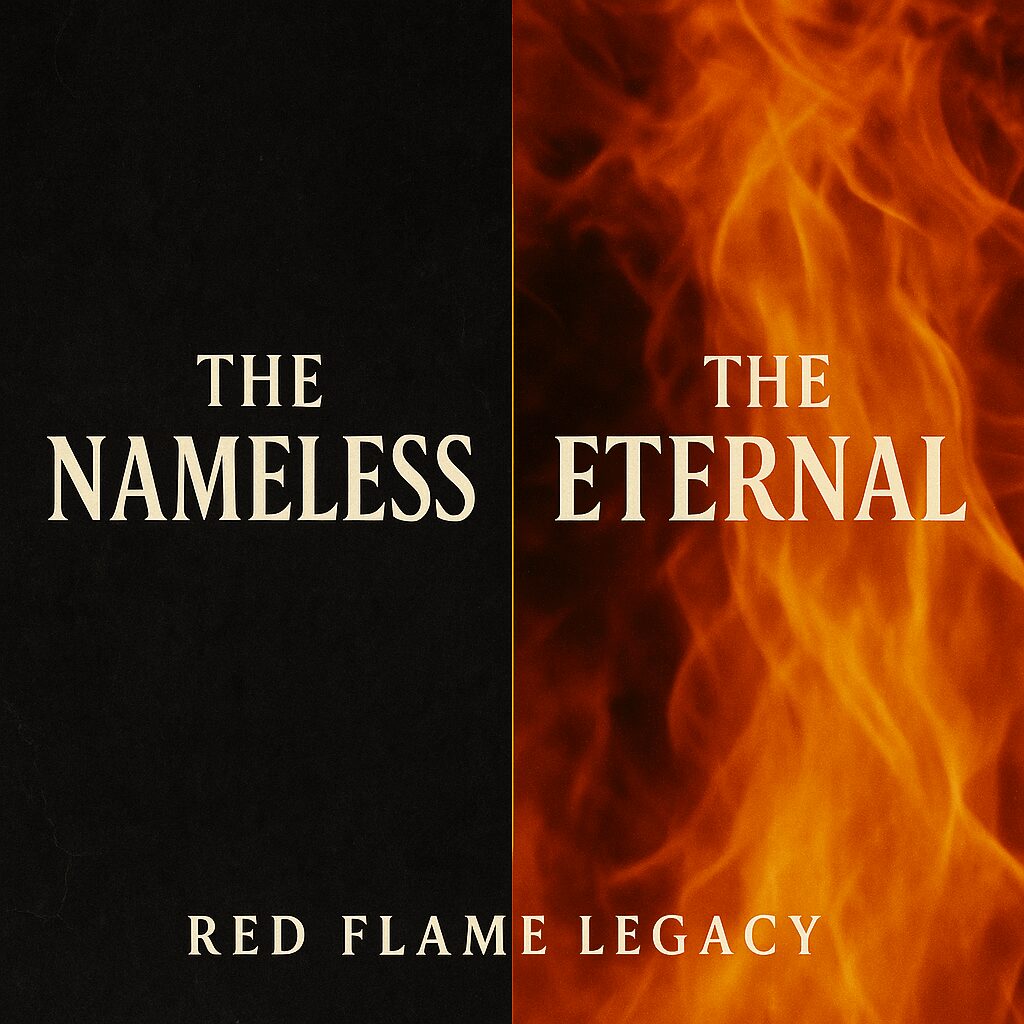
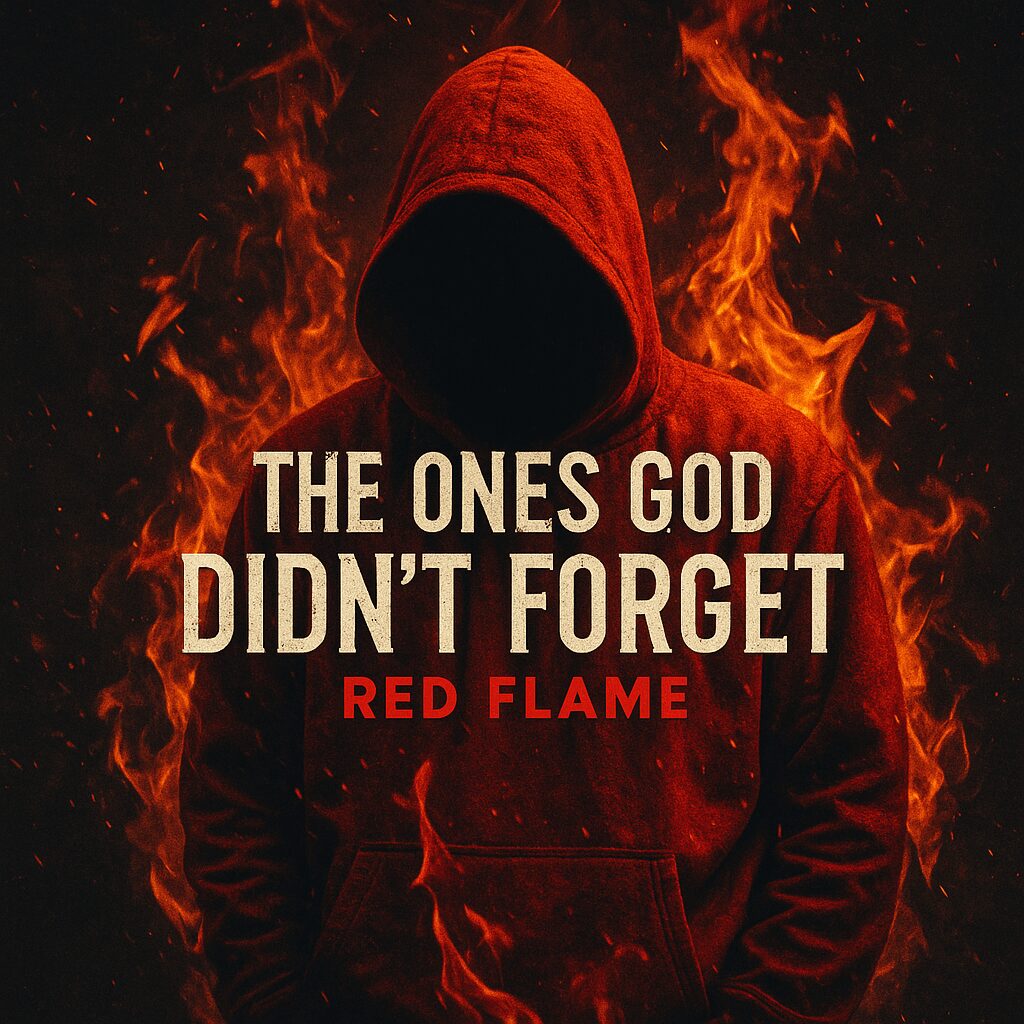
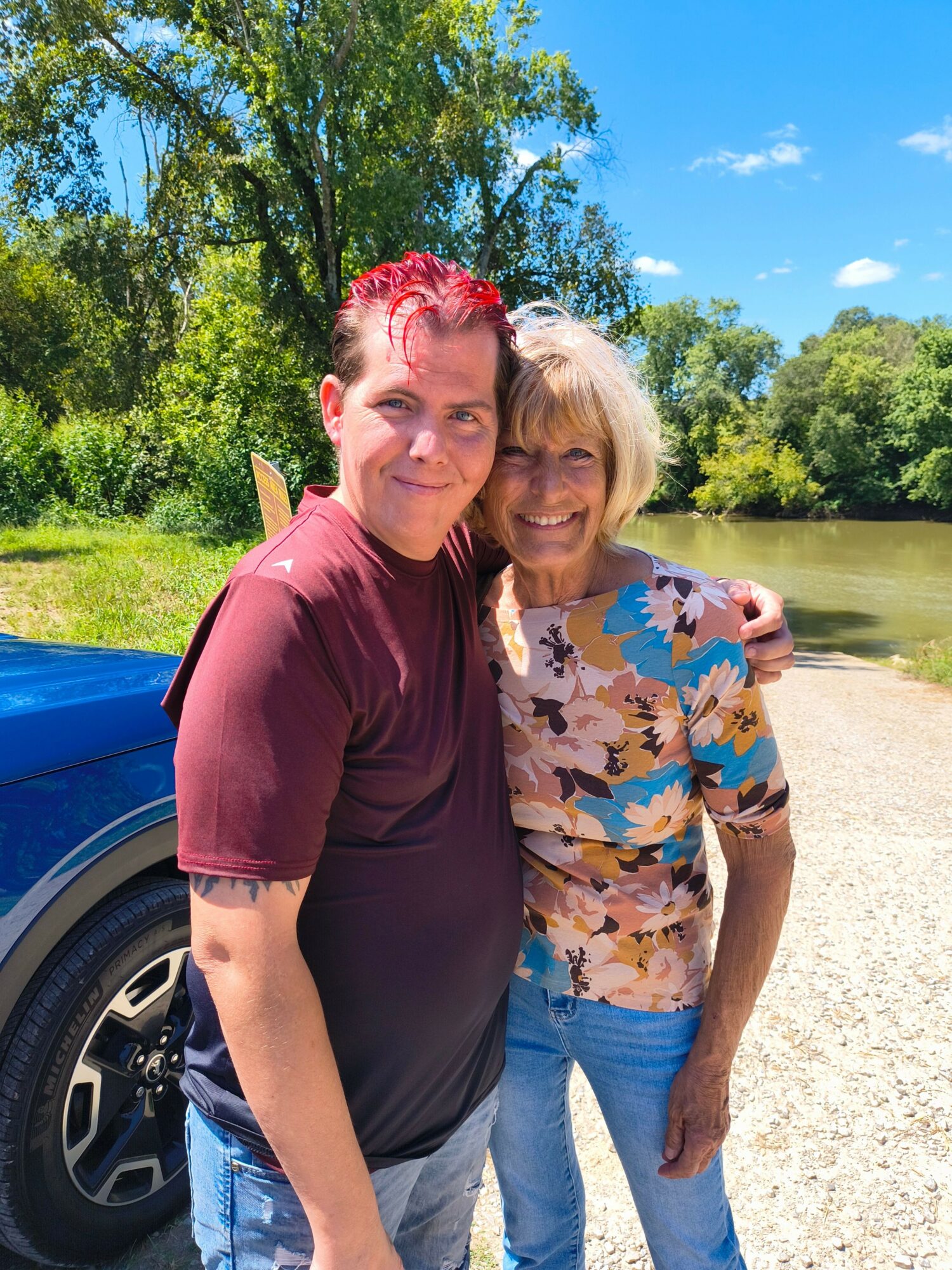
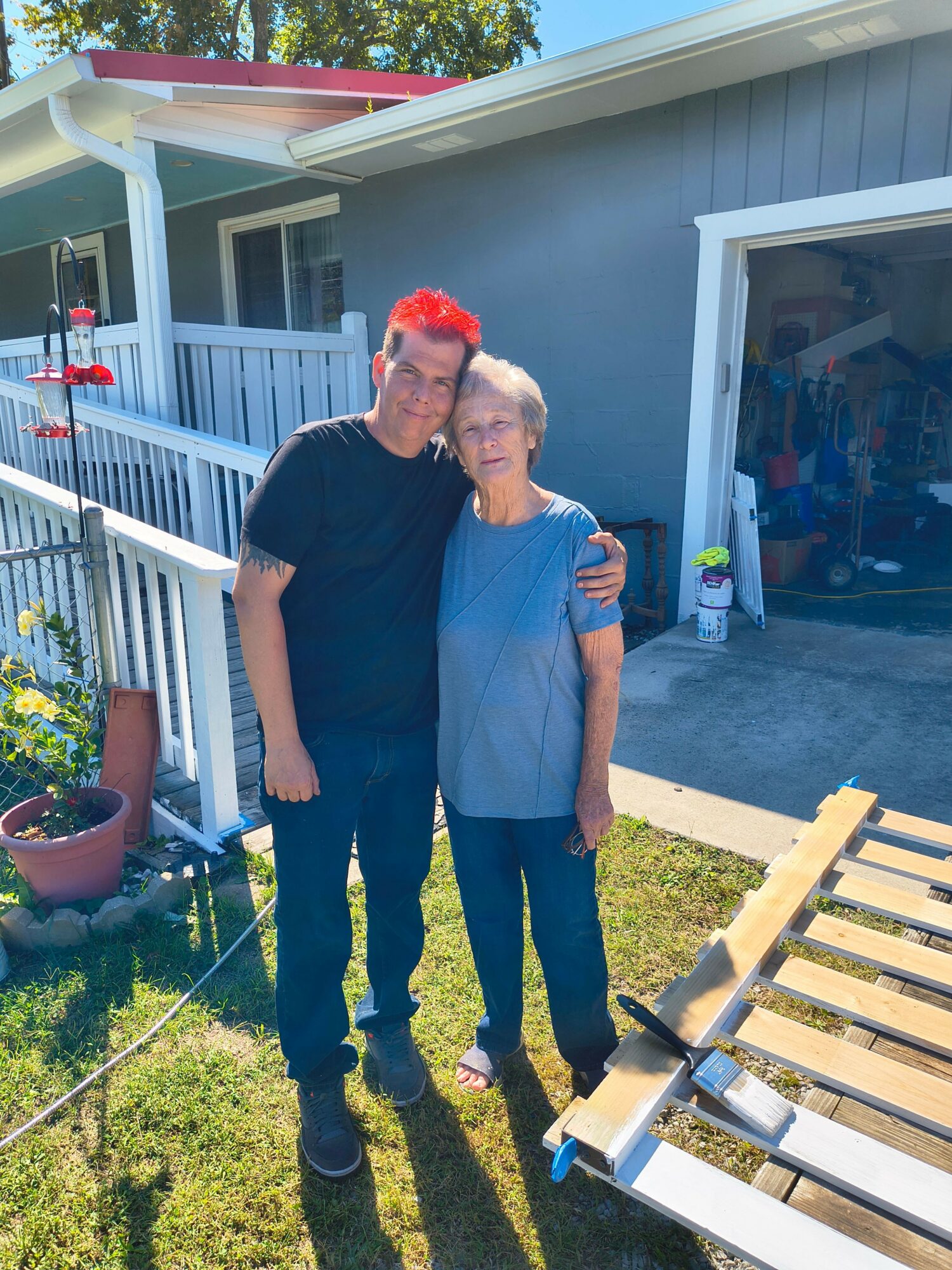
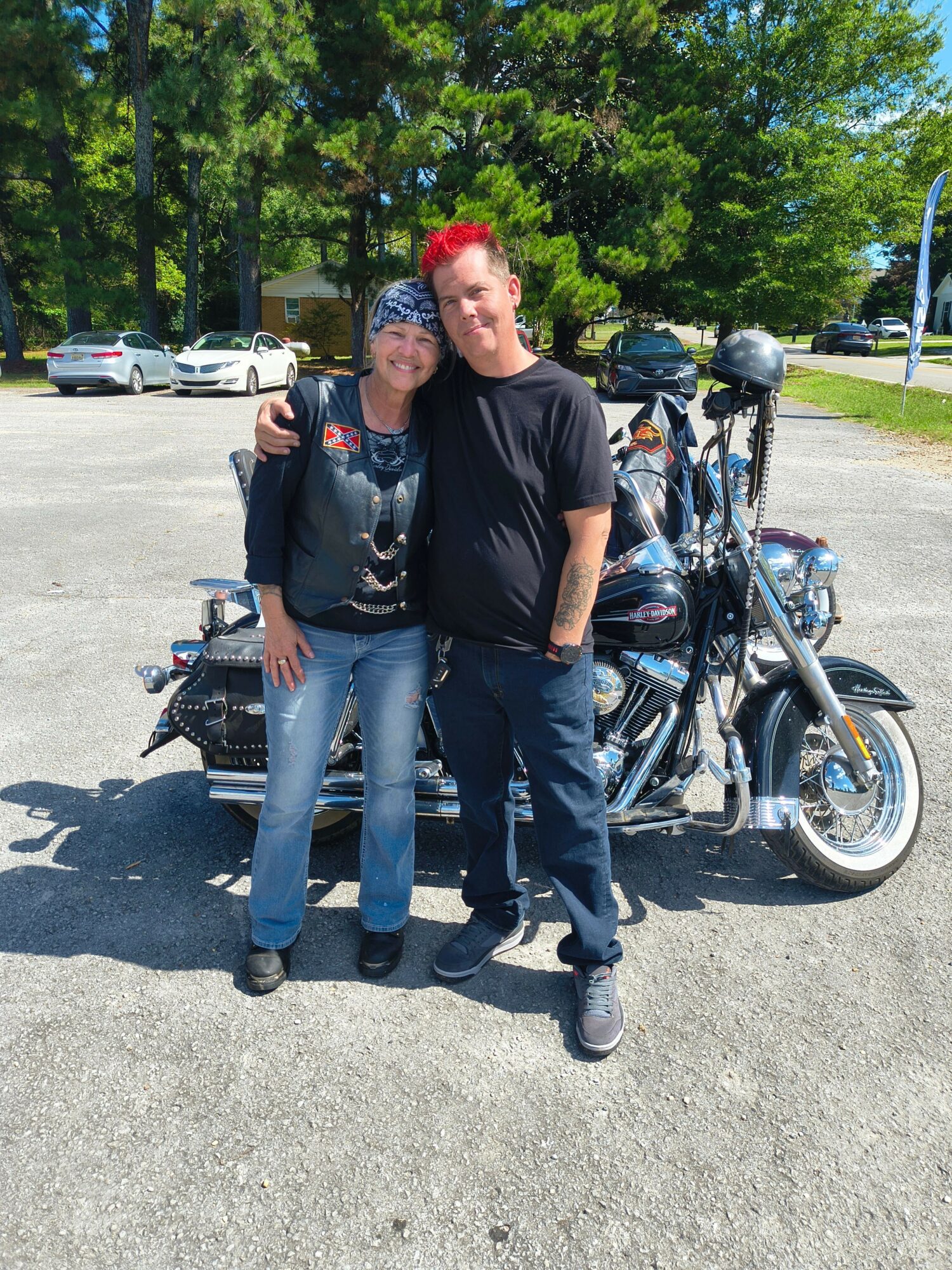
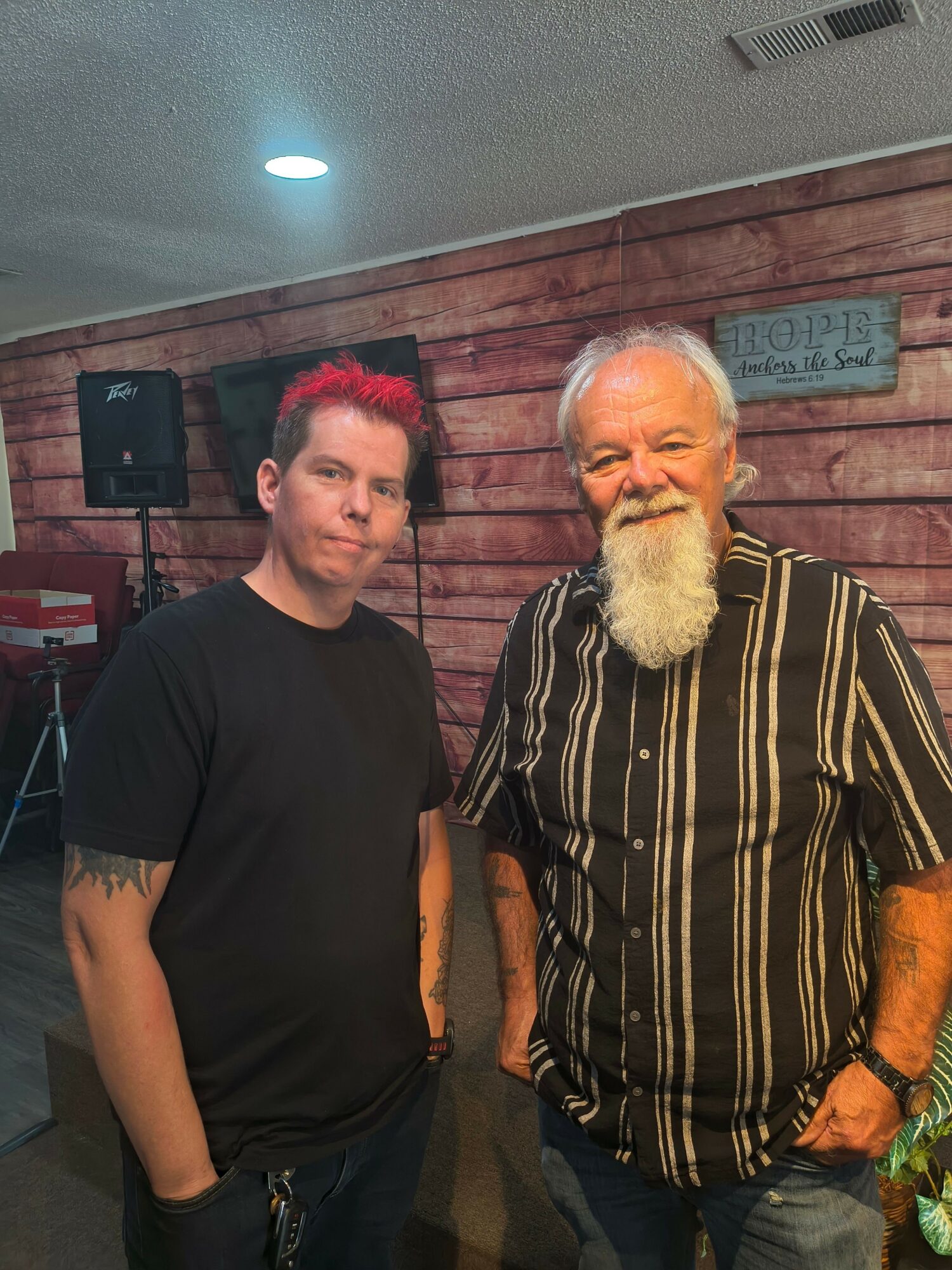
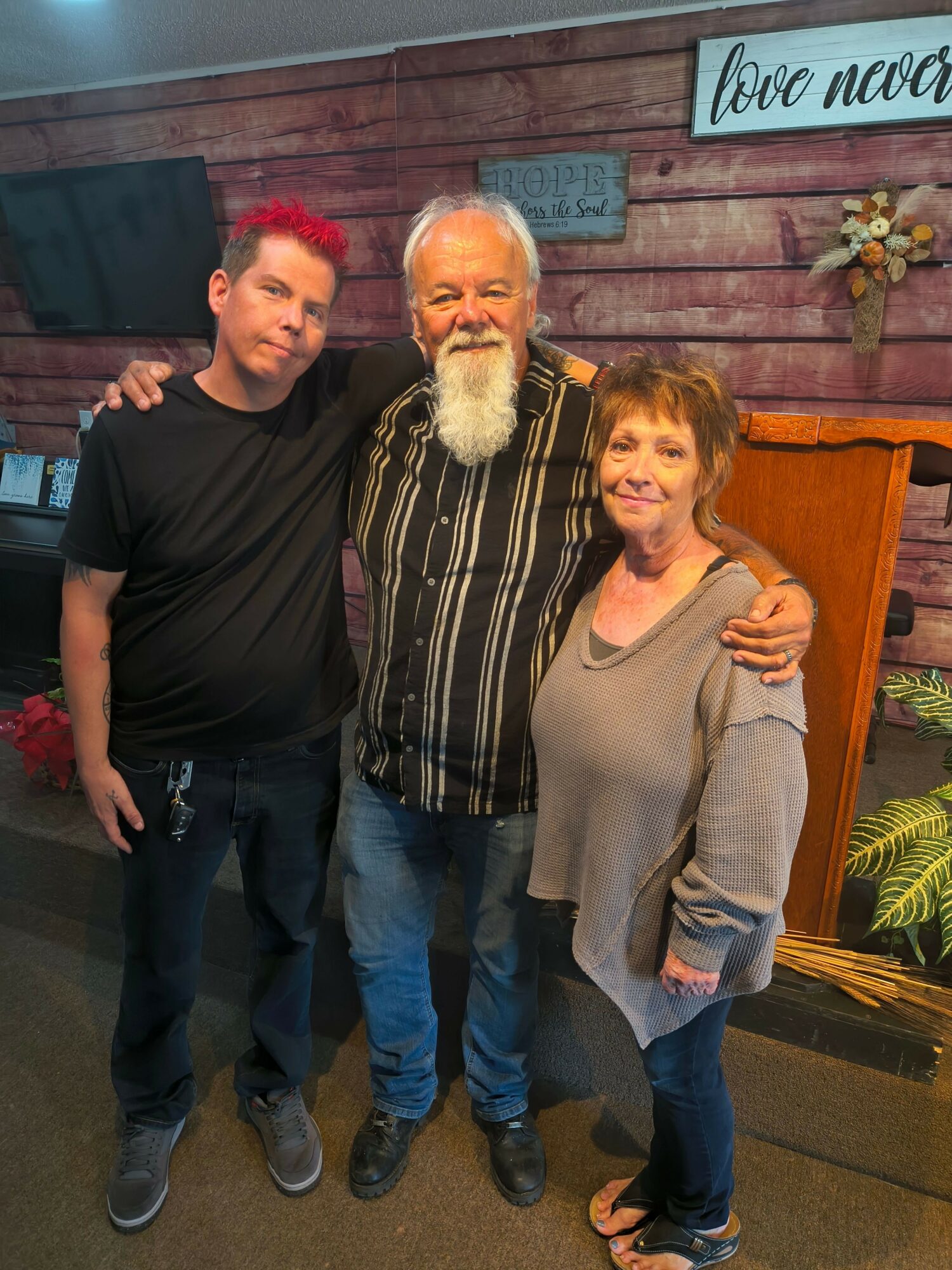
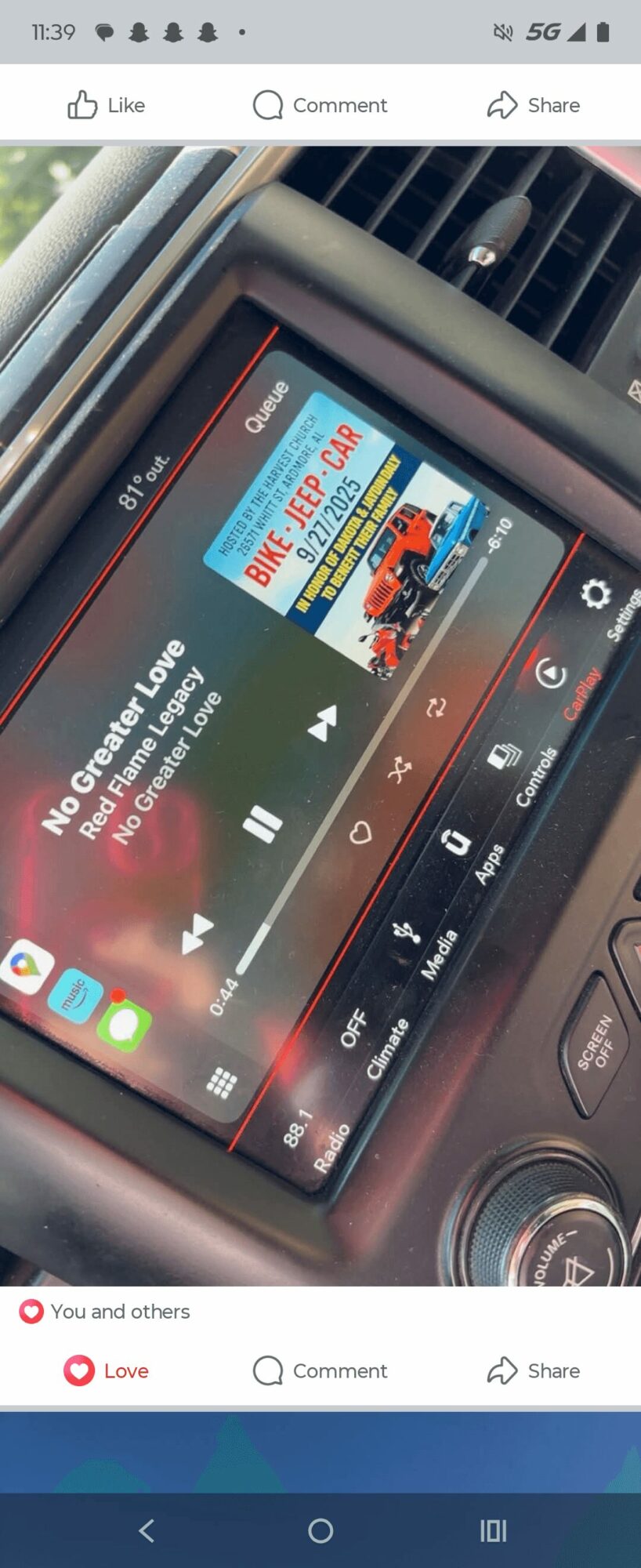
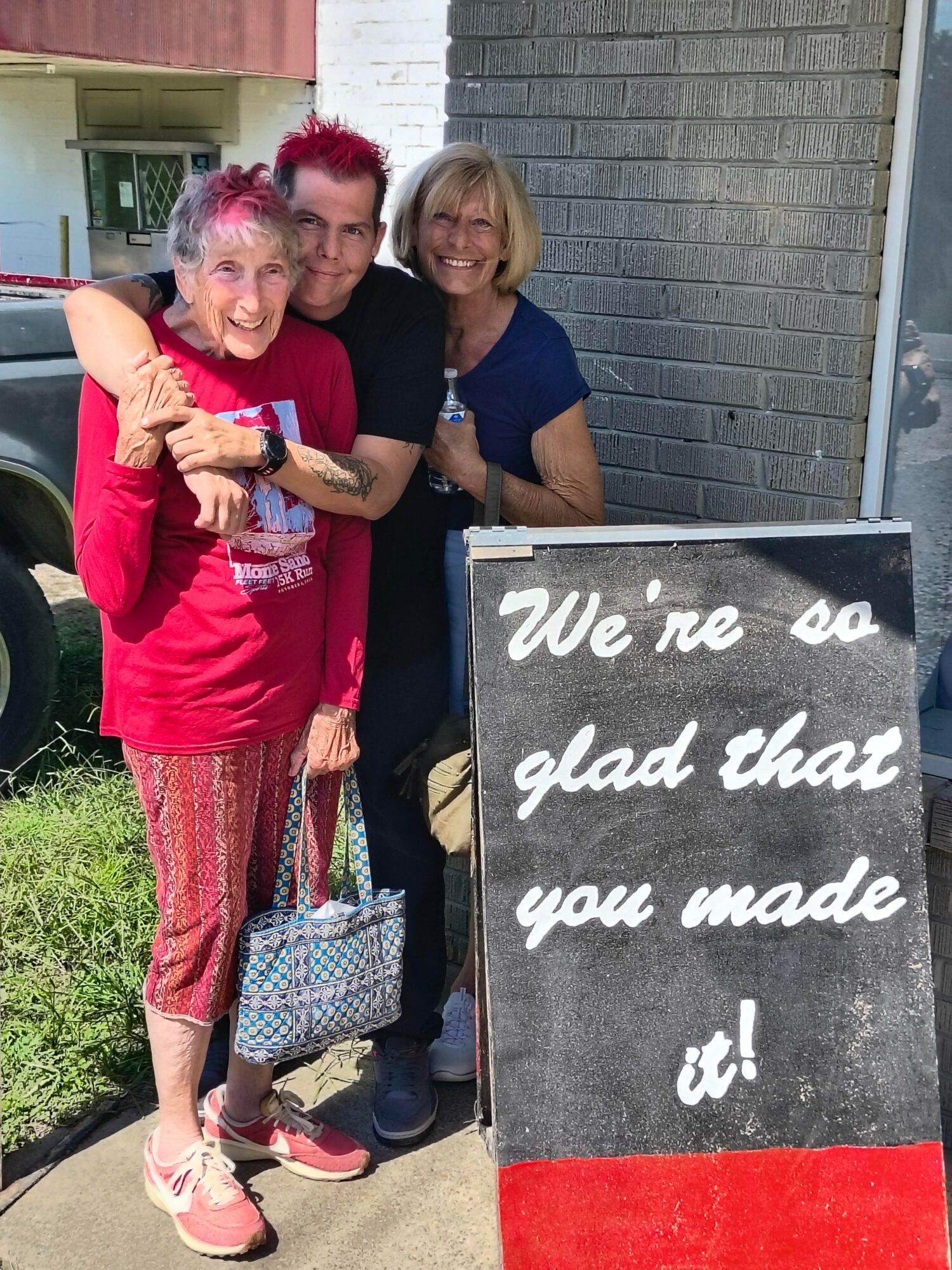
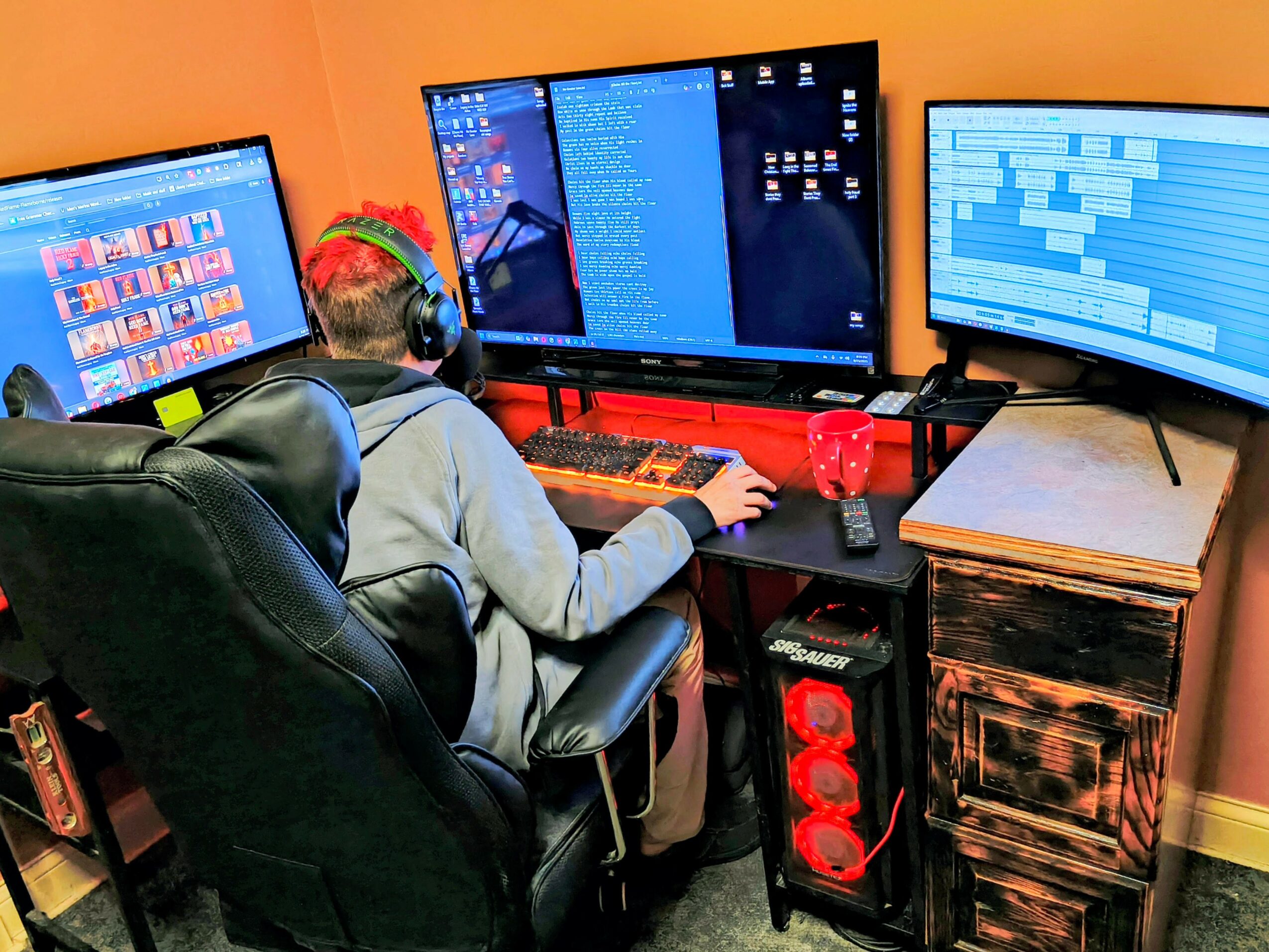
Image Credits
The one with me with my arms around her has all red on with red hair like mine. Miss Jane, also known as Fun Jane, is one of my biggest fans; she is 91 and my mom, Pati Anderson, is to my left
2 of them are album covers
the picture with the guy with the grey beard is CW Turner and his wife, Terri Turner; they play songs at the church go to called the Harvest Church. I wrote them custom songs. the picture of me and the old lady in blue is name is lynny i go help her with stuff around the yard. I was painting the fence that day. and the biker is another fan of mine; she didnt want her name listed but knows where its going













